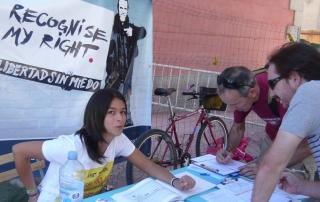Access for Rights: Planned Information Request Actions
Helen Darbishire2018-11-13T10:13:34+01:00Access for Rights: Planned Information Request Actions 1 February 2011, Madrid/London: During the project on Access for Rights, Access Info Europe and Statewatch will use Europe’s access to information laws to get comparative data on civil liberties issues. The goal is to generate information that can be used in advocacy to defend democratic rights. The issues that we will be focusing on include: • Mandatory Data Retention – right to privacy. • EU- Passenger Name Record – right to privacy / freedom of movement • New policing techniques – freedom of assembly. • Biometric Identity Documents – right to privacy



